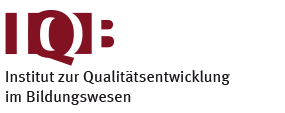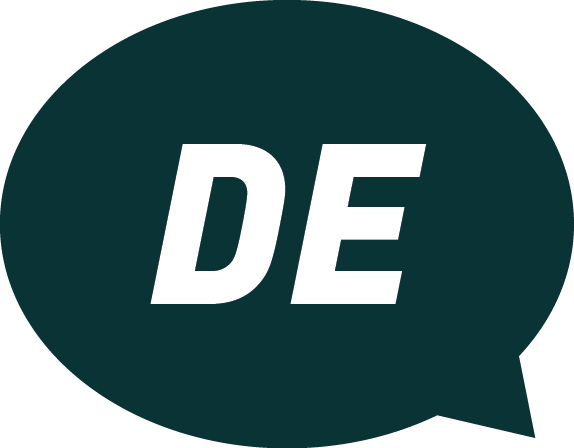Short- and Long-term Effects of a Phonological Awareness Training Program for Kindergarteners With and Without German Home Language (PHONO I)
Inhaltsverzeichnis
> Scientific Use Files beantragen
| Datensatz veröffentlicht am | 25.08.2017 |
|---|---|
| aktuelle Version verfügbar seit | 25.08.2017 |
| Erhebungszeitraum | 2009-2011 |
| Stichprobe | Welle 1 und 2: Kindergartenkinder (N=572); Kindergärten (N=45); Welle 3 und 4: Schüler*innen der Jahrgangsstufe 1 (N=854); Schulen (N=67); Lehrkräfte (N=89); Wellen 1-4: Eltern (N=1.261) |
| Erhebungseinheit | Eltern Lehrkräfte Schüler*innen |
| erfasste Kompetenzen | Phonologische Bewusstheit, Wortschatz, Gedächtnis und Abrufgeschwindigkeit, Lesekompetenz, Grammatik (Hörverstehen), Mathematische Kompetenz, Rechtschreibkompetenz, Morphologische Kompetenz |
| Region | Baden-Württemberg, Bayern |
| Leitung | Artelt, Prof. Dr. Cordula Schneider, Prof. Dr. Wolfgang Stanat, Prof. Dr. Petra |
| Datengebende | Julius-Maximilians-Universität Würzburg Schneider, Prof. Dr. Wolfgang |
| Auftraggebende / Mittelgebende | Bundesministerium für Bildung und Forschung (BMBF) |
| Link zur Studie | https://www.forschungsdaten-bildung.de/studien/373-phono-i-kurz-und-langfristige-effekte-eines-trainings-zur-phonologischen-bewusstheit-bei-kindergartenkindern-deutscher-und-nichtdeutscher-herkunftsspr/?cHash=352e4a7ada61edcc6f9af640fd1f0fc3 |
| Verwandte Studien | PHONO II (DOI: 10.5159/IQB_PHONO_II_v2) |
| Zitationsvorschlag | Schneider, W., Stanat, P., Artelt, C., Blatter, K., Faust, V., Jäger, D. & Schöppe, D. (2017). Kurz- und langfristige Effekte eines Trainings zur phonologischen Bewusstheit bei Kindergartenkindern deutscher und nichtdeutscher Herkunftssprache (PHONO I) (Version 1) [Datensatz]. Berlin: IQB – Institut zur Qualitätsentwicklung im Bildungswesen. http://doi.org/10.5159/IQB_Phono_1_v1 |
| Datenrestriktion / Zugangshinweise | Es gibt keine spezifischen Datenrestriktionen. |
Projektbeschreibung
Der Schwerpunkt der Studie ist die Prüfung der kurzfristigen und langfristigen Wirksamkeit eines Programms zur Förderung der phonologischen Bewusstheit und der Buchstaben-Laut-Zuordnung ("Hören, Lauschen, Lernen") bei Vorschüler*innen mit und ohne Migrationshintergrund. Zudem waren detaillierte Analysen zum Trainingserfolg von Kindern mit Migrationshintergrund vorgesehen, die ungünstige sprachliche Voraussetzungen aufwiesen. Es sollte geprüft werden, ob sich Trainingseffekte auch für verschiedene Sprachgruppen generalisieren lassen. Ein zusätzliches Ziel bestand in der Untersuchung der Frage, ob eine systematische Schulung hinsichtlich des Trainings sowie die Trainingserfahrung der Erzieher*innen positive Auswirkungen auf die Effektivität des Trainings haben. Schließlich wurde geprüft, ob Unterschiede des Anfangsunterrichts Einfluss auf die langfristige Trainingseffektivität und den Erwerb des Lesens und Schreibens nehmen. Der Studie lag ein Vor-Nachtest-Design mit zwei weiteren Nachuntersuchungen zugrunde, in denen die Entwicklung der sprachlichen, schriftsprachlichen und mathematischen Leistungen von Kindern vom letzten Kindergartenjahr bis zum Ende der ersten Klasse untersucht wurde. Im Vor- und Nachtest, der unmittelbar vor bzw. nach dem Training stattfand, wurden relevante Leistungen in den benannten Bereichen erfasst, während zu Schuljahresbeginn die Lernausgangslage, zum Schuljahresende die Leistungen der Kinder im Lesen und Schreiben erfasst wurden. Die Kinder der Trainingsgruppe durchliefen unmittelbar nach dem Vortest die Förderung zur phonologischen Bewusstheit, während die Kinder der Kontrollgruppe das übliche Kindergartenprogramm absolvierten. Ein Teil der Erzieher*innen der Trainingsgruppe erhielt eine ausführliche Schulung, während die anderen Erzieher*innen das Programm nach dem Manual durchführten. Zusätzlich zu den beschriebenen Merkmalen wurden Informationen zu demografischen und familiären Aspekten erhoben. Allgemein wurde erneut die kurz- und langfristige Wirksamkeit des Förderprogramms bestätigt. (Projekt/IQB)
Blank data sets
For a first overview of the data set and its variables, dummy data sets containing the variables used and the value labels relating to them are provided for download here.
- PHONO I - Parents Questionnaire 2010 (SPSS)
- PHONO I - Parents Questionnaire 2011 (SPSS)
- PHONO I - Achievement Test (SPSS)
- PHONO I - Teacher Questionnaire Assessment (SPSS)
- PHONO I - Teacher Questionnaire (SPSS)
Documentation
 Here you can find further documentation.
Here you can find further documentation.
Literature
Selected literature is listed  here (as of November 2019).
here (as of November 2019).
2017
Schneider, W., Stanat, P., Artelt, C., Blatter, K., Faust, V., Jäger, D. et al. (2017). Kurz- und langfristige Effekte eines Trainings zur phonologischen Bewusstheit bei Kindergartenkindern deutscher und nichtdeutscher Herkunftssprache (PHONO I) (Version 1) [Datensatz]. Berlin: IQB – Institut zur Qualitätsentwicklung im Bildungswesen. https://doi.org/10.5159/IQB_Phono_1_v1
2013
Blatter, K., Faust, V., Jäger, D., Schöppe, D., Artelt, C. & Schneider, W. (2013). Vorschulische Förderung der phonologischen Bewusstheit und der Buchstaben-Laut-Zuordnung: Profitieren auch Kinder nichtdeutscher Herkunftssprache? In A. Redder (Hrsg.), Sprachförderung und Sprachdiagnostik. Interdisziplinäre Perspektiven (S. 218–239). Münster: Waxmann.
Schöppe, D., Blatter, K., Faust, V., Jäger, D., Stanat, P., Artelt, C. et al. (2013). Effekte eines Trainings der phonologischen Bewusstheit bei Vorschulkindern mit unterschiedlichem Sprachhintergrund. Zeitschrift für Pädagogische Psychologie, 27(4), 241–254. https://doi.org/10.1024/1010-0652/a000110
2012
Jäger, D., Faust, V., Blatter, K., Schöppe, D., Artelt, C., Schneider, W. et al. (2012). Kompensatorische Förderung am Beispiel eines vorschulischen Trainings der phonologischen Bewusstheit. Frühe Bildung, 1(4), 202–209. https://doi.org/10.1026/2191-9186/a000063
Schöppe, D., Blatter, K., Faust, V., Jäger, D., Artelt, C., Schneider, W. et al. (2012). Phonologische Sprachförderung bei Vorschulkindern deutscher und nichtdeutscher Herkunftssprache. In J. Heide, T. Fritzsche, C. Meyer & S. Ott (Hrsg.), Spektrum Patholinguistik 5. Schwerpunktthema: Schluck für Schluck. Dysphagietherapie bei Kindern und Erwachsenen (Spektrum Patholinguistik, Bd. 5, S. 123–128). Potsdam: Universitätsverlag Potsdam. Verfügbar unter http://opus.kobv.de/ubp/volltexte/2012/5987/pdf/spath05.pdf#page=123
2011
Forschungsinitiative Sprachdiagnostik Sprachförderung, Julius-Maximilians-Universität Würzburg, Otto-Friedrich-Universität Bamberg & Freie Universität Berlin (Hrsg.) (2011). BMBF‐Projekt: Kurz‐ und langfristige Effekte eines Trainings zur phonologischen Bewusstheit bei Kindergartenkindern deutscher und nichtdeutscher Herkunftssprache (FKZ: 01GJ0972‐74). Codebuch zum Elternfragebogen Nr. 2.

